The Lauder Institute offers comprehensive mentorship and programming tailored specifically to Lauder students with an interest in entrepreneurship and venture development.
Our entrepreneurship programming features dialogues that delve into innovation and entrepreneurship across various regional, economic, and historical contexts, offering students unmatched opportunities to directly engage with industry leaders, alumni, and scholars.
The Institute supports aspiring entrepreneurs with concrete opportunities such as the Jacobson Global Venture Awards, which provide funding, mentorship, and recognition for student-led ventures. Additionally, Lauder connects students to the broader entrepreneurial ecosystem at the University of Pennsylvania. Finally, mentoring sessions with Lauder’s dedicated Entrepreneurship Faculty Lead are designed to ensure that each student’s entrepreneurial journey is fully supported and aligned with their individual goals and aspirations.
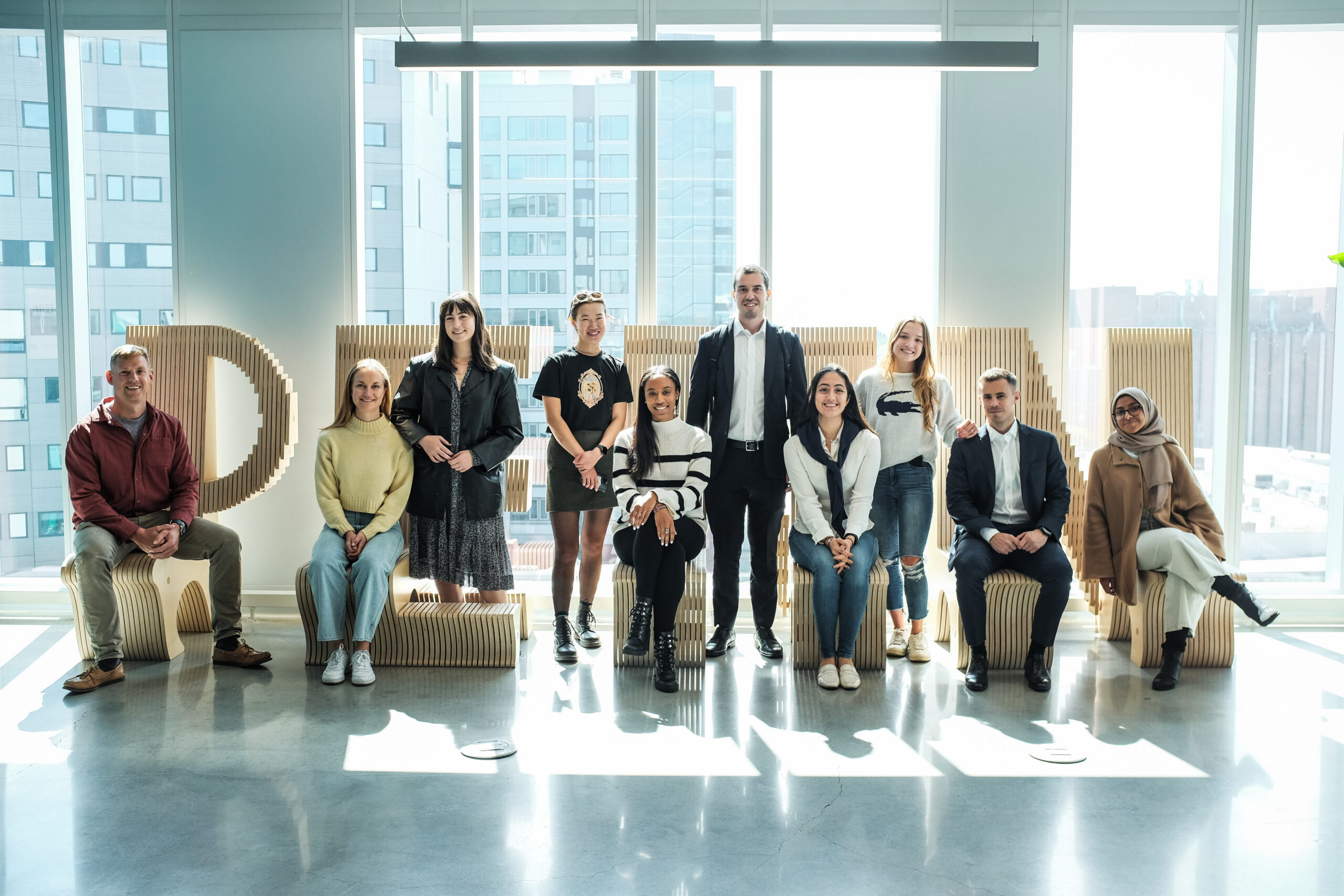
Pictured: Lauder students received a guided tour of The Venture Lab at Tangen Hall which houses a digital design studio, fabrication studio, food innovation lab, and retail lab. The facility on Penn’s campus provides budding entrepreneurs with the experiential resources necessary to develop their innovations and ventures.
Educational Programming
-
Learn from experts about entrepreneurship across different regional, economic, and historical contexts
-
Explore entrepreneurial resources and innovation hubs on and off campus
Venture Funding
-
Jacobson Global Venture Awards – a competition for Lauder students that offers cash awards for venture development
-
Learn More
Mentorship
-
Personalized mentoring with Lauder’s dedicated Entrepreneurship Faculty Lead
-
Connect with Lauder alumni entrepreneurs for advice
Sudev Sheth, Faculty Lead
Entrepreneurship Initiative
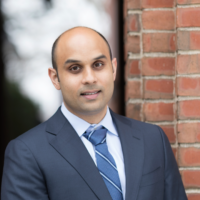
Contact:
sudev@wharton.upenn.edu
Special Speakers / Past Events
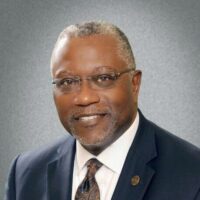
Derrick Collins
Accelerating & Growing Black Entrepreneurship
Derrick Collins, a noted academic, entrepreneur, and Dean of the College of Business at Chicago State University, met with students to offer a prescriptive set of methods that can be employed by entrepreneurship “influencers”, policymakers, technical assistance providers, and capital providers to advance entrepreneurial success among people of color. Professor Collins argued that building management skills should be an essential part of business education and training, and encouraged aspiring entrepreneurs to focus on acquisitions rather than startups due to their higher success rate. He also discussed the importance of equity capital in entrepreneurship.
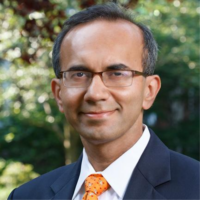
Tarun Khanna
Meritocracy & Entrepreneurship: India and China
Tarun Khanna, the Jorge Paulo Lemann Professor at the Harvard Business School discussed his latest book “Making Meritocracy: Lessons from China and India, from Antiquity to the Present”. The book seeks to answer the question of how societies identify and promote merit. It argues that finding and advancing competent and capable leaders based on talent, and regardless of social status, have long been central challenges for any society. Khanna, a successful entrepreneur in his own right, discussed entrepreneurship in the context of developing countries, particularly where the surrounding hard and soft infrastructure makes it difficult to launch ventures. Khanna noted that although meritocracy-building in China and India has distinctive local inflections, these countries’ attempts to prioritize merit-based advancement offers rich lessons for the rest of the world—including the United States.

Abhishek Gupta

Edward McGlone
Shaping the Future of Mobility: Autonomous Freight Pods & Electric Mobility Ecosystems
Students learned about the future of mobility as companies move towards more sustainable and ecofriendly methods of transportation. We were joined by Abhishek Gupta, Project Lead in Resilient Automotive Value Chains (RAVC) at the World Economic Forum and Edward McGlone at Einride.
Gupta discussed the RAVC project which brings together policy makers and industry leaders to improve automotive value chain resilience and supply chain transparency, especially across critical materials and resources (eg. metals, rare-earth semiconductors).
Edward Mcglone, Senior Director of Government Affairs at Einride discussed how Einride, an entrepreneurial venture in the freight technology space, is using Autonomous Electric Transport (AET) and an intelligent freight mobility platform to ensure a more ecologically-friendly road freight industry.
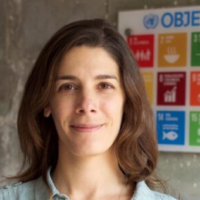
Verónica de la Cerda

Ming Khor
The Circular Economy: Local Impact in Latin America and Asia
In this session, students learned about circular economy innovations in Latin America and Asia and how governments and major companies are committing to sustainable production and recycling in these regions.
Verónica de la Cerda (G’12, WG’12), Board Member & Former CEO of TriCiclos discussed the place of TriCiclos in the production, consumption and waste disposal chain. TriCiclos is a Latin-America-based engineering and consulting company with a goal to eliminate ‘waste’ by designing the most circular trajectory possible for a product. This process involves determining and executing the most economical and sustainable method for a product’s distribution, return, recycling, and reuse.
Ming Khor (G’16, WG’16), Founder and CEO of Keru, discussed Keru’s place in the world of social impact education, and how Keru brings together high school students and professionals from various industries to partner in transformative project-based educational experiences that promote sustainable development.
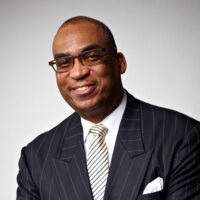
Steven S. Rogers
The Black Entrepreneur in America
Steven S. Rogers discussed the opportunities and challenges for black entrepreneurs in the United States. Rogers is a retired Harvard Business School (HBS) professor, entrepreneur, and author of multiple books. His latest publications “Successful Black Entrepreneurs: Hidden Histories, Inspirational Stories, and Extraordinary Business Achievements” and “A Letter to my White Friends and Colleagues: What You Can Do Now to Help the Black Community” focus on recognizing and celebrating Black entrepreneurial excellence. Rogers explained how the history of slavery, racism, and public policy in the US has led to a significant wealth gap between blacks and whites and the importance of black entrepreneurs in this context. He discussed the contributions of black entrepreneurs to both the economy at large and as job creators for their communities, and how highlighting and supporting black-owned businesses can help to alleviate this wealth gap.

Júlio Erdos
Breaking Out of Business School
Launching an entrepreneurial venture while still in school is never an easy journey but it has ultimately been a rewarding one for Júlio Erdos (G’19, WG’19). Erdos is the COO and co-founder of Sigo Seguros, a company focused on serving the Spanish-speaking community with fair-priced auto insurance. He detailed the ups and downs of getting Sigo Seguros off the ground with his co-founder and fellow Lauder alumnus Néstor Hugo Solari (G’19, WG’19). Erdos’ wide-ranging talk addressed different ways Sigo Seguros raised money, the pros and cons of different funding sources and the value of SAFE notes for early investors. Erdos, a Jacobson Global Venture Award winner discussed the importance of the award alongside the resources available to Lauder/Wharton students as critical tools in successfully launching a startup. The candid conversation provided valuable insight for our students, many of whom are budding entrepreneurs.


